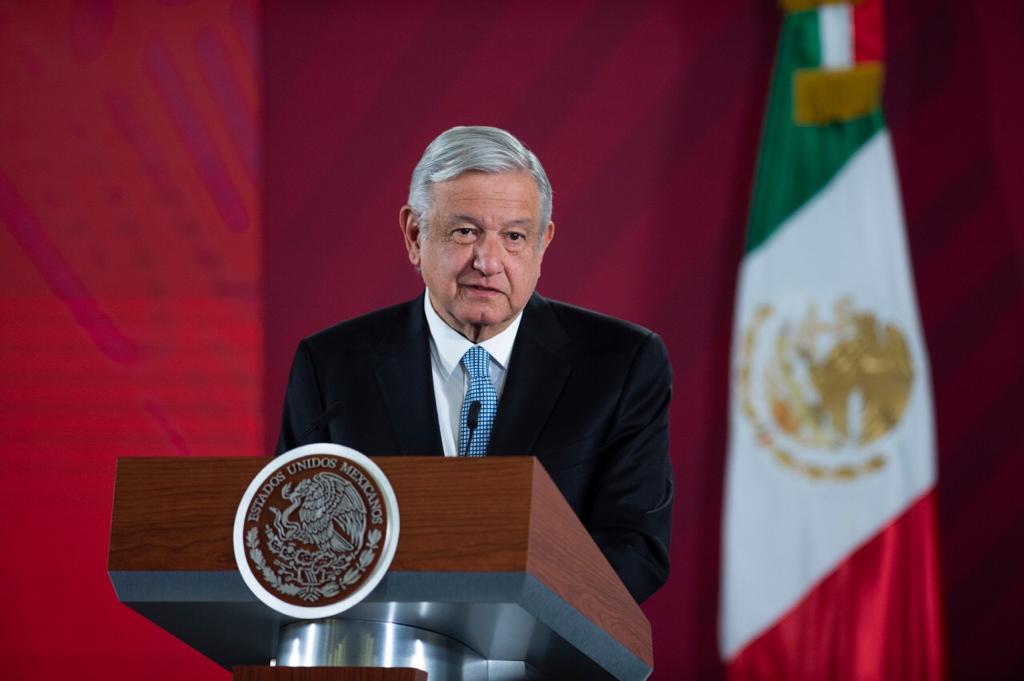Few global relationships are as significant as the one between the U.S. and our neighbor to the immediate south — Mexico. Our shared geography and history, the cultural connections and ties between peoples are deep and profound. They have made and continue to make Texas the unique place it is today.
And yet, diplomatically speaking, there’s the occasional falling out. And the diplomatic falling out unfolding at the moment would appear to be a doozy.
Yesterday, the outgoing populist president of Mexico, Andrés Manuel López Obrador, or AMLO as he is widely known, announced a pause in Mexico’s relationship with the embassies of the U.S. and Canada.
The freeze comes after the diplomats from both the U.S. and Canada spoke out against López Obrador’s plan to reshape Mexico’s judicial system. López Obrador feels these diplomats don’t have any business weighing in on Mexico’s internal affairs.
Carlos Gutierrez Mannix, a lecturer in political science at the University of Texas – Rio Grande Valley, said this move is largely symbolic, and centers on López Obrador’s plan to make judges electable in Mexico.
“One of the main proposals within the reform of the judiciary is to have direct election of judges,” he said. “The Mexican president said that this reform will actually lead to getting rid of the corruption that has ridden the judicial department for many decades. But the United States is, I think, a bit afraid that if they do this, they’re going to open up the judiciary to politics as usual. And we know in Mexico, ‘politics as usual’ often means a lot of corruption, a lot of money coming from dark places.”
Thousands of judges and court workers around Mexico have already gone on strike in protest of this plan. And last week, the U.S. ambassador publicly called this change a major risk to the functioning of Mexico’s democracy — a very incendiary statement, Gutierrez Mannix said.
“The current Mexican president is extremely popular, and a lot of that popularity, in part, comes from his heightened nationalist rhetoric and his heightened messaging towards the public that Mexico should be independent and sovereign,” Gutierrez Mannix said. “And when the United States sent the current ambassador, Ken Salazar, it was a good gesture because he is of Mexican descent, he speaks Spanish. And the relationship between him and the president has been very cordial, because Salazar is very good at being very diplomatic and not getting into certain topics.
But I think this topic just went over the board, and I think it was a point where Salazar just felt like, ‘okay, I can say this because this is our position.’ It seems as if he didn’t measure exactly what the response from López Obrador would be.”
Those who oppose this judicial reform point to the politicization of the courts in favor of the Morena party, which is López Obrador’s party, Gutierrez Mannix said.
“Once elections occur and once those elections are for judges, Morena will take a vast majority of them,” he said. “The courts will be co-opted by allies of the president.”
“But I think a large reason for this stance from the United States is because the United States has experience with electing judges at the state level. And we have all different types of evidence that tells us that direct elections can be dangerous. Direct elections can lead to a judiciary that’s mostly representing the powerful and the wealthy.”
Gutierrez Mannix said the fear in Mexico specifically is giving bad actors the power to influence judicial decisions.
“In Mexico, that’s the fear, right? That a lot of the current elections are co-opted by dark money, by drug cartels,” he said. “And the moment the judiciary is open up to democracy and to elections, it will also be corrupted by drug cartels, right? Because what better opportunity, if you’re a criminal, than to have direct elections and be able to position those judges directly in the judiciary and then count on them in the future?”
Gutierrez Mannix said the pausing of diplomatic relations is more of a slap on the wrist than anything else.
“This is very symbolic. It doesn’t mean much. Staff is not being asked to leave. They’re not being asked to censor themselves,” he said. “The president is not going to talk to the ambassador directly until he wants to. It’s a way of applying pressure to the United States and to Canada while at the same not causing an international problem, but also at the same time gaining some public support.”
Despite the protests, Gutierrez Mannix said these reforms are widely popular.
“Most people are actually in favor of the reform,” he said. “Most people think the judiciary is very corrupt and that it’s been co-opted by the very wealthy, and that it’s become a bureaucracy that’s not representative. And the president has been very good at weaving this message. At the same time, if he’s pausing the relationship but he’s not causing an international rift, it still gives him some popular values, some popular weight.”
This move also comes as López Obrador is about to end his six year term, and his successor, Claudia Sheinbaum, is set to take over the presidency on Oct. 1.
“One of the things that the president-elect Sheinbaum has been very strategic at doing is making sure that the thread of the story between López Obrador and her is not broken – that she’s seen as a continuation of this growing nationalism, too,” Gutierrez Mannix said.
“And so she, I think, is going to continue with this trend. But I think she’s going to be a bit more pragmatic, just because she does seem to be a much more pragmatic person. And also she historically has never taken very nationalistic positions.”
That said, Gutierrez Mannix said this is still a learning opportunity for U.S. officials in how to best conduct diplomatic relations with Mexico.
“It’s just going to be a precedent for the next U.S. president,” he said. “And so the next U.S. president will understand that Sheinbaum is a continuation of AMLO. And they really just have to be careful in what they say and what they say publicly for their diplomacy at the end of the day.”













